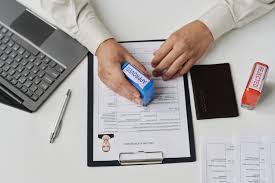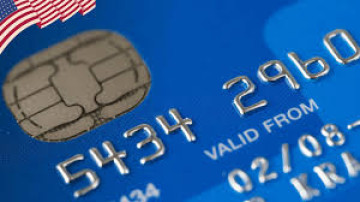Understanding Visa Denials: What You Need to Know
Applying for a visa can be a complex and sometimes stressful process. Despite careful preparation, some applicants may face the unfortunate situation of having their visa application denied. The good news is that a visa denial is not the end of your journey — you have the option to appeal the decision or reapply. However, it is crucial that you do not repeat the same mistakes that led to the denial. This article aims to guide you through understanding why visas are denied, how to properly address the issues, and increase your chances of obtaining a visa on subsequent attempts.
Common Reasons Why Visas Are Denied
Visa applications can be denied for various reasons. Identifying the precise cause of denial is the first critical step in effectively responding to the situation. Some of the most frequent reasons include:
- Incomplete or incorrect documentation;
- Failure to meet eligibility criteria;
- Inadequate proof of financial means;
- Previous immigration violations or criminal records;
- Suspicion of intent to immigrate permanently when applying for a non-immigrant visa;
- Inconsistent or unclear answers during the visa interview;
- Missing deadlines or procedural errors;
- Unconvincing ties to home country, leading to fears of overstaying;
- Security concerns or inadmissibility under immigration laws.
Step-by-Step Guide on What to Do if Your Visa Is Denied
Facing a visa denial might feel disheartening, but it also presents an opportunity to reassess and improve your application. Follow these steps to enhance your chances in an appeal or a new application:
- Obtain the Details of the Denial: Request a clear explanation from the relevant consulate or embassy regarding the reason for denial.
- Analyze the Reasons: Carefully assess whether the issue lies in documentation, eligibility, or procedural errors.
- Seek Professional Consultation: It is advisable to consult immigration experts or legal advisors who can provide targeted guidance.
- Gather Correct and Complete Documents: Make sure to compile all required documentation, properly filled and verified.
- Address the Specific Issues: If your financial proof was insufficient, provide stronger evidence. If interview responses were an issue, practice for clarity and honesty.
- File an Appeal or Reapply: Depending on the embassy’s procedures, decide whether to submit an appeal or submit a new application.
- Prepare Thoroughly for the Visa Interview: Confidence and clear communication during the interview are essential.
The Importance of Precision in Visa Applications
One of the most critical factors influencing the outcome of your visa application is precision. This means paying close attention to the details, procedures, and requirements specific to the visa category you are applying for. Precision includes:
- Filling out application forms without errors;
- Submitting valid, original documents;
- Meeting deadlines strictly;
- Providing truthful information;
- Following consular guidelines meticulously;
- Preparing carefully for interviews;
- Ensuring sponsorship or invitation letters meet required standards;
- Being aware of country-specific rules and updates as of 2025.
Precision minimizes risks of rejection and delays. Reapplying without addressing these aspects can lead to repeated denial and wasted time.
When and How to Seek Professional Help
Navigating visa processes can sometimes require specialized knowledge and experience. If you find the process overwhelming or your visa situation complex, professional assistance can be invaluable. Expert consultants:
- Help identify and correct errors in your application;
- Provide personalized advice based on your individual circumstances;
- Assist with document preparation and verification;
- Guide you through appeals and administrative procedures;
- Keep you informed about changing regulations and visa policies in 2025;
- Offer interview preparation and strategy;
- Increase the likelihood of visa approval by enhancing the quality of your application.
If you require proper assistance, contacting professionals through bio communication links or sending a private message is highly recommended.
Best Practices for Reapplying After a Visa Denial
After understanding the reasons behind your denial and seeking expert advice, following best practices will optimize your chances in future applications:
- Do not attempt to reuse incomplete or incorrect documents.
- Update your application with all corrections clearly made.
- Prepare new supporting documents, such as recent bank statements or letters.
- Demonstrate strong ties to your home country, such as employment, family, or property.
- Practice answering potential interview questions with honesty and confidence.
- Respect all deadlines and appointment schedules.
- Be patient and allow sufficient time for processing;
- Keep track of your application status through official channels.
Conclusion
The process of applying for a visa can be daunting, especially when faced with a denial. However, a visa refusal should not discourage you from pursuing your goals. Instead, it should motivate you to analyze the reasons carefully, correct mistakes, and reapply with a stronger, more precise application. Seeking professional help, preparing thoroughly, and following the proper procedures can significantly improve your chances of success in 2025 and beyond.
If you find yourself uncertain about how to proceed after a visa denial, do not hesitate to contact experienced consultants through contact information provided in the bio or send a private message for clear and tailored assistance. Remember, precision changes outcomes, and with the right approach, you can turn a denial into a future approval.
Legal Marketplace CONSULTANT is a trusted legal firm specializing in comprehensive assistance with visa applications and immigration-related services. Our expert team is dedicated to guiding clients through complex procedures, ensuring precision and compliance with the latest regulations.































